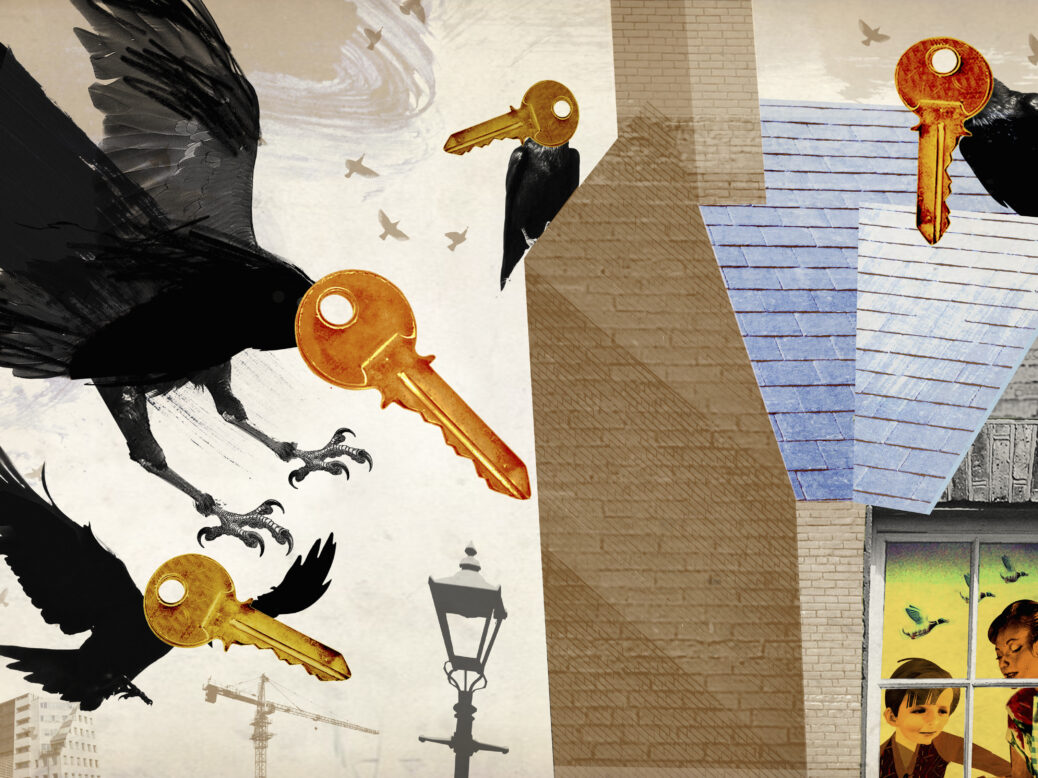
Since the start of the pandemic, the novel coronavirus has claimed more than 150,000 lives in the UK; worldwide, the death toll stands at more than five million. On top of that there are the millions of cases of long Covid, whose persistent effects remain unknown; the mental health crisis brought on by years of disruption and existential terror; the medical conditions that have gone unnoticed or untreated by a health service whose entire focus had been redirected elsewhere; the educations, careers and businesses disrupted; the friendships and love affairs never begun.
But never mind all that now, because here’s a press release from the National Residential Landlords Association (NRLA) telling of the previously forgotten victims of Covid-19. Are you ready for the saddest story since Hemingway’s baby shoes? Here we go:
“Quarter of landlords hit by rent losses because of Covid.”
Listen very carefully and you can hear the violins.
The NRLA press release – why they send them to me I’ve no idea; I only use them to write stuff like this – tells of a poll of just over 1,000 landlords conducted by YouGov. It found that, between March 2020 and September 2021, 23 per cent of private landlords “lost rent” due to the impact of Covid. This included 11 per cent “who had negotiated rent reductions and temporary suspensions of rent payments with some of their tenants”; we are obviously meant to take the underpayments, despite such generous and altruistic behaviour by their landlords, as pretty ungrateful behaviour on the part of those tenants.
How much lost income are we talking here? Of those affected, more than half (54 per cent) “said they had lost up to a fifth of their income across their portfolio”. This is a very odd way of phrasing it – anyone who lost tuppence a week could surely be included in a measure that runs “up to a fifth” – which renders that stat almost meaningless. What’s more, the millions of people on furlough also lost a fifth of their income, so it hardly seems unreasonable to expect landlords to put up with the same. The 5 per cent who reported that they had lost more than half of their rental income will clearly have struggled rather more, but they did at least have the option of selling some property, which is a lot more than their tenants did.
The NRLA aren’t fools – they know that landlord sob stories would be unlikely to elicit sympathy, even if it weren’t for the small matter of a once-a-century global pandemic – so they go out of their way to stress that landlords aren’t the only victims of these lost rental payments. The polling also found that 36 per cent of those who had lost income said they planned to either “sell a portion of their portfolio” (reducing the number of homes they own but don’t live in!), or get out of the Rachmanism business completely. “With those landlords affected almost twice as likely to sell property as those who were not,” the release grimly intones, “the National Residential Landlords Association is warning that the pandemic has exacerbated a supply crisis now facing tenants.”
Now, there clearly is a crisis facing tenants. Just this week Rightmove reported that rents are rising at the fastest rate on record; in London, rents have hit a record £2,142 a month – which, just for the record, is the post-tax salary earned by someone on £32,414 a year (providing, of course, they don’t have any student loans). The mismatch between the number of people seeking homes and the number of homes available is clearly one of the things driving this, which is why some of us have spent the last decade banging on about the need to build more houses.
Nonetheless, the problem facing renters is a shortage of homes. It is not a shortage of landlords. If some do exit the market, they are hardly going to demolish their properties in a fit of pique: if homes are lost from the rental market it will only be through tenants becoming owners.
Then again, given the recent history of the housing market, it seems entirely probable it won’t be new owner-occupiers who buy those properties, but other, less flighty landlords. As sad as it is for those landlords whose access to someone else’s wages the pandemic has reduced, and as disruptive as it is when a landlord announces their intention to sell the house you happen to be living in, it is hard to see why this should be an issue for tenants as a class.
Ben Beadle, the NRLA’s chief executive, ends the press release with a rallying cry: “As a matter of urgency, councils need to make use of the money they now have to help tenants get Covid rent debts cleared.” But this money, a £65m fund announced last October, was created to protect vulnerable tenants in rent arrears from eviction (a word, oddly enough, that does not feature anywhere in the NRLA press release). Its function is not simply to ensure their landlords don’t have to take a haircut.
And sometimes they should. Buy-to-let housing is not risk free, and the value of investments can go down as well as up. If landlords can’t accept that, sometimes, economic circumstances will mean they receive less money than they expect, they shouldn’t be in the market at all. It is not unreasonable for renters to expect those who provide their homes not to flounce out of the market at the first sign of trouble.
What the NRLA has done here is inadvertently make an extremely strong case against the private rental sector, and in favour of social housing.






